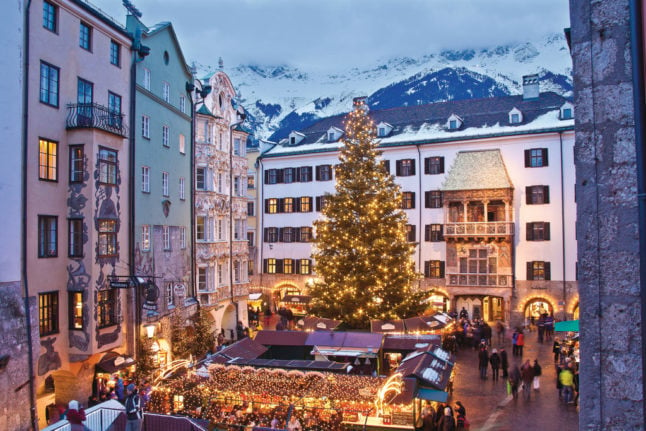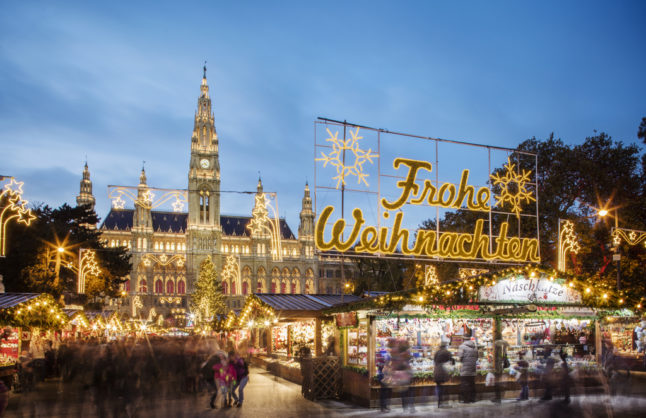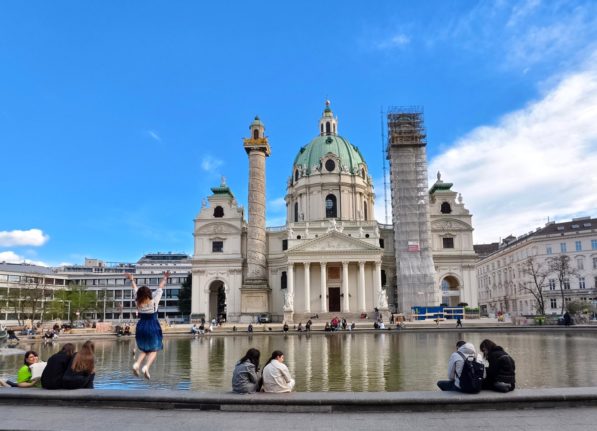Krampuslauf
The Christmas season is also known as Krampus season in Austria, especially in smaller towns and villages.
The history of the Krampus figure is said to stretch back to pre-Christian Alpine traditions. Krampus, a half-goat, half-demon creature, scares children who have misbehaved during the year and rewards those who have behaved well with gifts. The figure of Krampus is often associated with a cleansing or purifying role, chasing away evil spirits.
The demon-like Krampus usually appears on December 5th, before Nikolaus Day. He performs in a so-called Krampuslauf, entering the streets of Austrian towns to create a show while residents watch.
Dressed in nightmarish masks and furry costumes, Krampus is famous for creating a spectacle with robotic movements, dramatic gestures, and loud bells.
Giant Advent Calendars
In some Austrian towns and villages, buildings are transformed into giant advent calendars during Christmas. A new window is opened each day leading up to Christmas, exposing a festive scene or decoration.
In Graz, the Graz Town Hall transforms into a giant illuminated Advent calendar during the coldest season of the year.

Carp in the Bathtub
Some families purchase a live carp in the days leading up to Christmas and keep it in a bathtub before preparing it for New Year’s dinner. This tradition is believed to bring good luck and is particularly common in the Czech-influenced regions of Austria.
The tradition likely began as a pre-refrigeration storage technique, but it is still going strong in some families today.
Family members will then keep some fishbones throughout the year for blessings of luck and health.
Christkind
To the surprise of many outsiders, in Austria, it is not Father Christmas or Santa Claus who brings the presents – it is Christkind, the “baby Jesus”, who symbolises the spirit of giving and the goodwill associated with the Christmas season.
The Christkind is often portrayed as an angelic figure wearing a white robe and golden wings. In some regions of the country, the Christkind makes ceremonial announcements to open Christmas markets officially.
This can include a public event where the Christkind (often portrayed by a local child) addresses the crowd and marks the start of the holiday festivities.



 Please whitelist us to continue reading.
Please whitelist us to continue reading.
Member comments